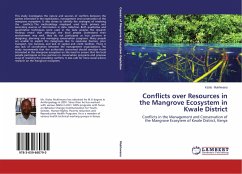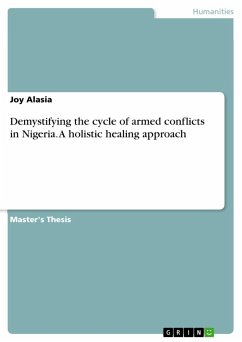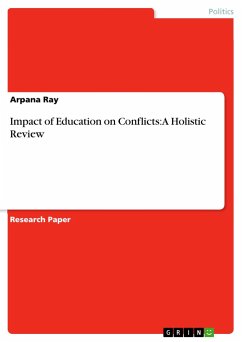
Conflicts over Resources in the Mangrove Ecosystem in Kwale District
Conflicts in the Management and Conservation of the Mangrove Ecosytem of Kwale District, Kenya
Versandkostenfrei!
Versandfertig in 6-10 Tagen
41,99 €
inkl. MwSt.

PAYBACK Punkte
21 °P sammeln!
This study investigates the nature and sources of conflicts between the parties interested in the exploitation, management and conservation of the mangrove ecosystem. It also strives to identify the strategies of resolving the conflicts. The methodology employed used both primary and secondary sources of information in data collection. Both qualitative and quantitative techniques were used in the data analysis. The research findings reveal that although the local people understand their environment very well, they do not participate as true partners in designing, planning and managing conserva...
This study investigates the nature and sources of conflicts between the parties interested in the exploitation, management and conservation of the mangrove ecosystem. It also strives to identify the strategies of resolving the conflicts. The methodology employed used both primary and secondary sources of information in data collection. Both qualitative and quantitative techniques were used in the data analysis. The research findings reveal that although the local people understand their environment very well, they do not participate as true partners in designing, planning and managing conservation programs. Many people are unable to exploit the mangroves due to expensive licenses, poor transport, low business, and lack of capital and credit facilities. There is also lack of coordination between the management organizations. The study recommends that the authorities concerned should sensitize those interested in the mangrove ecosystem on the need to ensure that the local people participate as true partners in conservation programs and propose ways of resolving the prevailing conflicts. It also calls for more social science research on the mangrove ecosystem.












